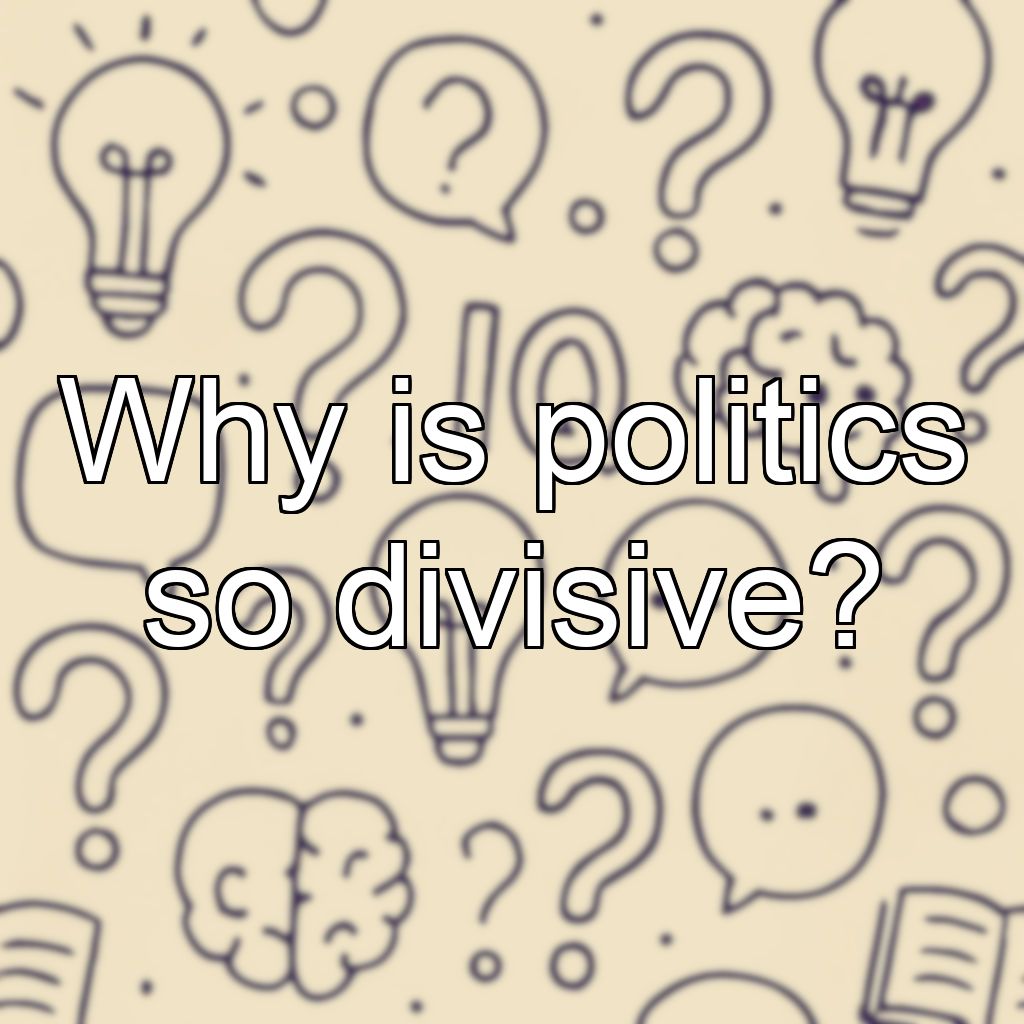Why is politics so divisive?

Why Politics Is So Divisive
Politics tends to be highly divisive for several interconnected reasons that span psychology, society, and the structure of political systems.
Key Factors Contributing to Political Divisiveness
- Identity and Belonging: Political beliefs often become closely tied to personal identity, making disagreements feel like personal attacks rather than simple differences of opinion.
- Group Polarization: When people discuss political issues primarily within like-minded groups, their views tend to become more extreme, deepening divisions between opposing sides.
- Media Landscape: The rise of partisan news sources and social media echo chambers reinforces pre-existing beliefs, spreads misinformation, and amplifies conflict.
- Emotional Issues: Many political issues touch on deeply held values, beliefs, and emotions, making compromise more difficult and debates more heated.
- Winner-Take-All Systems: In some countries, especially those with majoritarian electoral systems, political victories are often absolute, increasing the stakes of political battles and heightening tensions.
- Manipulation by Leaders: Political leaders and groups may intentionally stoke divisions to mobilize supporters, distract from other issues, or weaken opponents.
Psychological Underpinnings
- Confirmation Bias: People are more likely to seek out and believe information that confirms their existing views.
- In-group/Out-group Dynamics: Humans naturally form groups and are inclined to distrust outsiders, which can manifest in political contexts as "us versus them" thinking.
Conclusion
Political divisiveness arises from a complex mix of psychological tendencies, societal structures, and the tactics of political actors. Understanding these factors can help individuals and societies work toward healthier political dialogue and greater cooperation.